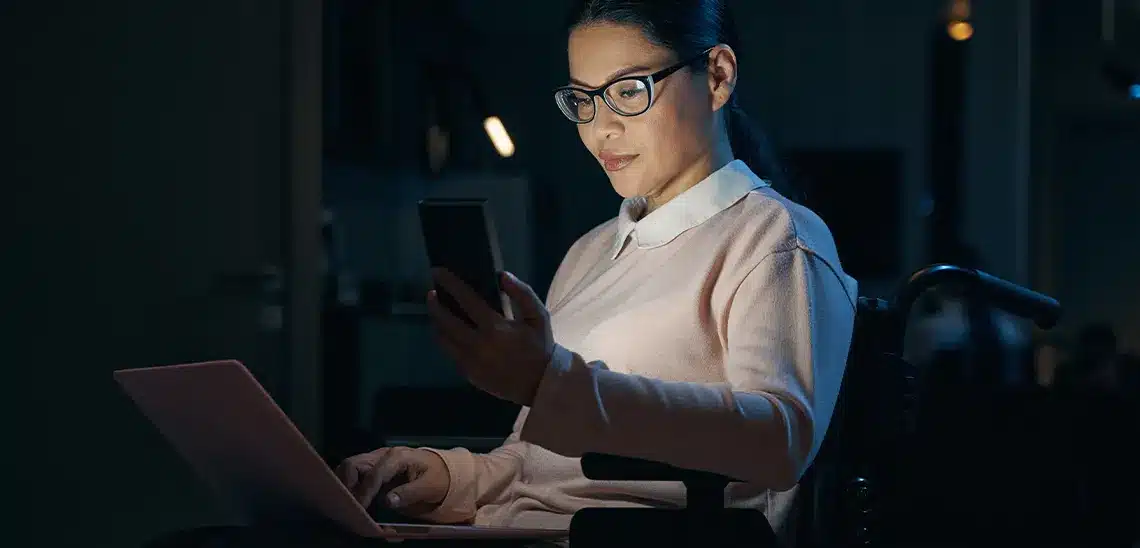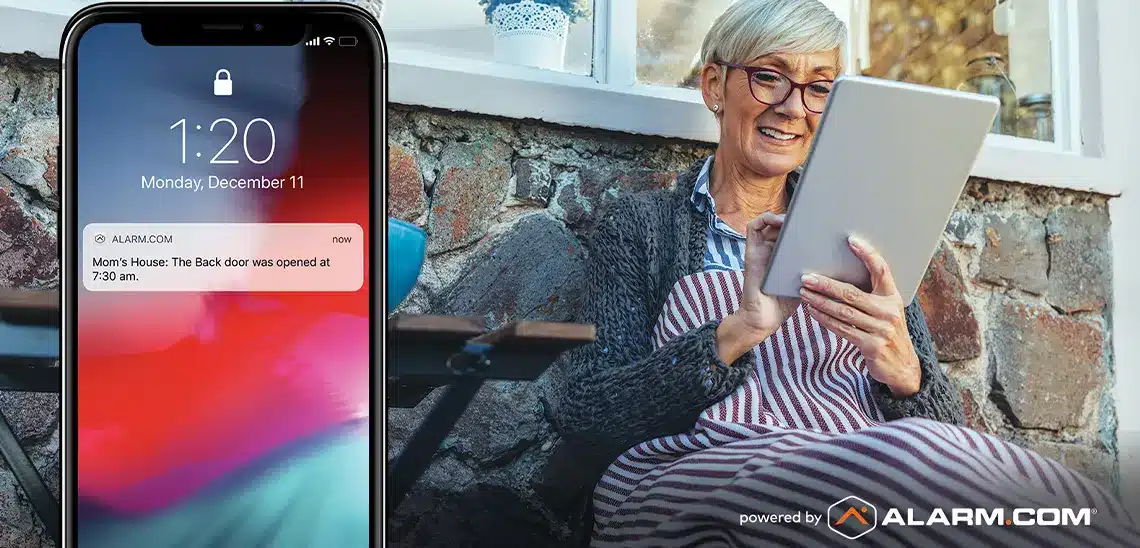
Attaining Independence
Caretakers of elderly or disabled people may sometimes feel that an independent life is too far out of reach. However, smart home solutions have made it easy to achieve! Anyone who has relied on external sources for help with chronic illness, physical immobility, or visual impairment can now find self-sufficiency with the aid of smart home devices. Whether the user prefers using voice commands connected to a voice assistant or an app on their favorite smart device, they can control nearly every function of the home in daily life. This includes being able to adjust and operate the home’s temperature, lighting, entertainment systems, locks, doors, and even some kitchen appliances! Users can even access and track physical and medical data through certain devices. Furthermore, AI and robot vacuums help maintain a clean home by consistently eliminating irritants that may trigger allergies or lower immune systems.
Let’s say that a user prefers to manage their home in a hands-off method. In this case, a voice command assistant will be the central control hub of the home, which is best for users with limited mobility or visual impairments. A Bluetooth connection links assistants with smart devices and appliances, allowing for easy setup and maintenance. Most seniors prefer voice activation control over a screened control system due to ease of use. A voice command system allows users to make phone calls, check the weather forecast, listen to music, dim the lights, close the shades, and even turn on the TV with a spoken request. Independence is only a few words away.

Living in Safety
Homeowners with impairments are understandably concerned with feeling safe. It’s easier than you think to grant disabled residents and caretakers peace of mind through smart security solutions. In a similar vein, many grandparents urge their family members to be careful while worrying about their own well-being. Smart locks, doorbells, and CCTV systems are effective to protect anyone who desires a secure, self-sufficient life.
Imagine a smart door that utilizes audio or visual cues to alert a homeowner when a door has been opened. For example, a beep or brightly colored blinking light can be very helpful to visually impaired homeowners who may otherwise feel startled or unsure if someone has entered their space. A set of authorized users can control smart locks and doorbells to monitor traffic coming through the home. This means you can lock the door behind a forgetful parent, or you’ll know when the nurse has visited them. There are now smart doorbells that contain a motion-sensor camera, granting the homeowner the ability to view, converse with, and unlock the door for guests via an app. This is a perfect solution for users with limited mobility who no longer must leave their current room to answer the door to let a guest inside. Only authorized smartphones can access smart locks, making them even more secure than a keypad code. It’s possible to assign specific codes to smartphones to track individuals who frequent the home; you can even implement daily or weekly access restrictions.
Some of you may be caretakers of a disabled or elderly homeowner with an independent streak. To avoid bothering them with frequent calls or visits, a CCTV system will allow you to check in to see how they’re doing at the moment. Once you obtain the homeowner’s consent to place cameras in particular interior and exterior spots of their home, you can access their camera feeds from a paired app on your smartphone from any place at any time. You can even opt to send movement notifications to your cellphone for particular camera feeds. Silent alarm systems can alert caretakers if a smart system has sensed that the homeowner has fallen, is unresponsive, or calls for aid.

Sensing Acute Needs
It’s possible to optimize your home’s energy efficiency when you link smart home devices to a smart energy management system. For residents with bodies sensitive to acute temperature changes, this may be a helpful solution. For example, homeowners with cerebral palsy have a lower core body temperature and may enjoy a system that saves energy while maintaining a warmer home. Residents with physical limitations, such as wheelchair users, can use a smartphone app to adjust the temperature without needing to ask someone to reach a control panel out of reach on the wall.
Furthermore, closing the blinds can be just as easy with a voice command, remote control, or smartphone app. Smart blinds can block out sunlight to lower temperatures in the heat of summertime or let in refreshing daylight in the early morning and late evening. When night falls, motion-sensor automated lights can light up hallways and rooms to prevent anyone from stumbling in the darkness. For users who have sensory overstimulation or simply want to sleep in peaceful darkness, it’s possible to adjust the dimness and activation timeframes for each room.
